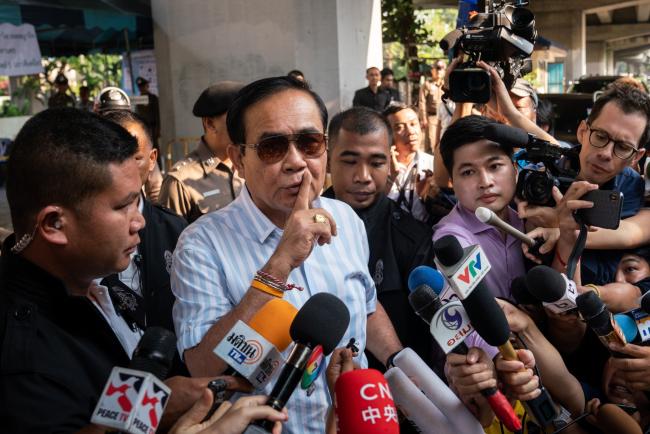(Bloomberg) -- The uncertainty surrounding Thailand’s election outcome threatens to set back the economy’s grinding recovery from the 2014 coup.
Five years after seizing power, Thailand’s junta is seeking to keep its leader Prayuth Chan-Ocha in control despite unofficial results showing the party linked to exiled former premier Thaksin Shinawatra is on course to win the most number of seats in Sunday’s vote.
A prolonged power struggle could undermine an economy that’s reasonably well placed in the short term: foreign reserves are the envy of the emerging-market world, the lure of its beaches and nightlife keeps tourists rolling in, and exports to other economies in the region held up well last year even though trade with China is now struggling amid a slowdown there and tariff tensions with the U.S.
But those factors mask underlying weaknesses in the economy that a new government will need to fix in the long term. Falling productivity, rapid aging that threatens to make the country old before it’s rich, and declining investment have seen Thailand’s attractiveness drop below many of its peers. Economic growth has been stuck at an average of 3.1 percent since the start of 2014 -- not enough to lead the country out of its middle-income trap.
And even the economy’s strengths are backfiring: the rock-solid balance of payments position is driving up the baht, eroding the competitiveness of exports.
In order to kick the economy into higher gear and defend against the looming demographic headwinds, economists say the government needs to make good on big commitments in infrastructure -- and not just around the key hubs like Bangkok.
Transport Projects
Even just delivering pending contracts from the junta’s reign should help convince foreign investors that it’s business as usual in Thailand and that the $54 billion transport corridor project along the eastern seaboard that Prayuth championed remains an apolitical priority.
“We need to see more on-the-ground execution” of the plans in place on badly needed infrastructure, said Felix Lam, a senior Asia Pacific equities portfolio manager at BNP Paribas (PA:BNPP) SA in Hong Kong.
Delivering on those blueprints would give some life to total investment spending in Thailand, which lags regional peers at 24 percent of gross domestic product, compared with an average of 29 percent among Southeast Asia’s biggest economies.
Away from the construction sites, the Thai government will have to show some progress on improving the quality of education and health care in order to ensure that “Thai people really feel they’re living in a middle-class society,” Birgit Hansl, the World Bank’s country manager for Thailand, said in a Bloomberg TV interview.
Aging Society
An aging population is looming as a big threat over the economy. Citing World Bank data, the central bank says Thailand will be the first developing country to become an “aged society" in 2022 in which at least 14 percent of the population will be at least 65 years old.
The Bank of Thailand’s proposals include raising the retirement age, supporting reverse mortgages for the elderly, and providing employers with incentives to hire workers older than 60 -- policies that fall outside the central bank’s remit and would need to be implemented by a new government.
The central bank may have greater influence over another key structural challenge in the economy: relatively high household debt. It’s already imposed stricter mortgage-lending rules that take effect in April and raised interest rates in December just before a dovish turn by central banks globally in 2019.
First things first, Thailand needs a way out of the current political mess to give investors some hope.
“The more stable the coalition government, the better the impact to the Thai economy,” Kattiya Indaravijaya, the president of Kasikornbank Pcl, said in an interview with Bloomberg TV in Bangkok. The political parties have similar economic policies, so “no matter what the government will be, the economic policy from any combination will be the same,” she said.
